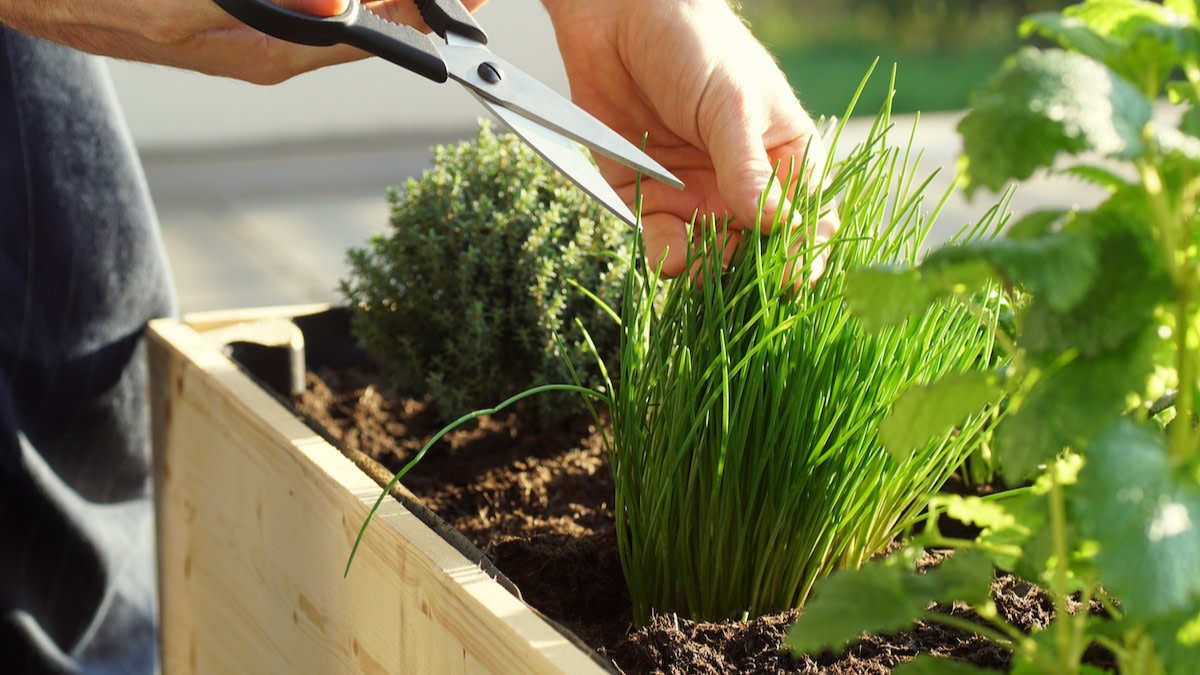Chives Companion Planting Guide: 5 Plants to Grow With Chives
Written by MasterClass
Last updated: Jun 7, 2021 • 3 min read
Chives are a great plant for beginner gardeners, as they are easy to grow and are low maintenance. As you expand your garden, continue to use chives as a companion plant for many other crops and flowers.
Learn From the Best
What Is Companion Planting?
Companion planting is a time-tested gardening method that enriches and protects vulnerable crops. Farmers and gardeners plant specific crops near each other in order to deter pests, attract beneficial insects, and stimulate growth.
What Are the Benefits of Companion Planting?
Companion plants will either help a specific crop grow or will grow better beside a specific crop, and can do many support jobs in the garden:
- 1. Repel insect pests. Cabbage worms, cucumber beetles, Mexican bean beetles, carrot flies, cabbage moths—all kinds of pests can plague vegetable gardens. Many companion plants (like marigold flowers, catnip, and rue) repel specific pests and should be planted near certain crops to keep them pest-free.
- 2. Attract beneficial insects. Pollinators like bees and ladybugs can use a little encouragement to visit vegetable gardens and pollinate the crops. Gardeners often plant attractive plants like borage flowers to encourage pollinators to visit.
- 3. Improve soil nutrients. When crops grow, they take up valuable nutrients from the soil—leaving the gardener to do a lot of work at the end of the season to renew the soil’s nutrients. However, there are many companion plants (like bush beans and pole beans) that add nutrients like nitrogen back into the soil, helping keep other plants healthy.
- 4. Encourage faster growth and better taste. Many companion plants (like marjoram, chamomile, and summer savory) release specific chemicals that encourage faster growth or better taste in the plants around them.
- 5. Provide ground cover. Plants that spread low across the ground (like oregano) serve as a blanket over the soil, protecting it from the sun and keeping it cooler for plants that benefit from lower temperatures.
- 6. Provide necessary shade. Plants that grow tall and leafy (like zucchini and asparagus) can provide welcome shade for sun-sensitive plants beneath them.
- 7. Serve as markers. When growing slow-growing plants, it can be difficult to tell where the rows will be while you’re waiting for the seeds to sprout. Gardeners often use fast-growing plants (like radishes) interspersed with the slow growers in their rows to delineate where the slow growers will be.
What Are Chives?
Chives (Allium schoenoprasum) are a thin, grass-like member of the allium family, which also includes garlic, scallions, shallots, and leeks. With a subtle oniony flavor, chives are one of the most widely used garnishes in the world and can be found in most grocery stores and farmer’s markets. Chive plants also produce edible purple flowers known as chive blossoms, which are typically trimmed during harvest.
5 Companion Plants to Grow With Chives
Chives are a low-maintenance perennial, and as long as they get full sun, you can plant them once and harvest them for years. Chives also make a good companion plant for other plants because of their long life, during which they help repel pests and help attract beneficial pollinators. Examples of good companion plants to grow and harvest with chive plants include:
- 1. Alliums: Chives are an Allium, so you can plant them alongside members of that same family, like onions, leeks, scallion, and garlic since they require similar care.
- 2. Appletree: Plant some chives around your apple trees to help prevent apple scab. Chives also deter deer and other animals that might feed on your apple trees.
- 3. Carrot: Growing chives alongside carrots can help your carrots grow better, giving you a bigger bunch with more flavor.
- 4. Strawberries: Similar to apple trees, chives planted near strawberries help deter animals that might find a feast in your bushes. Chives also add nutrients to the soil, which the strawberries feed on—trim your chive plants and leave the clippings to act as a mulch.
- 5. Tomato: Chives help repel pests like aphids, which love to feed on tomatoes. Like with carrots, chives also help improve the yield of your tomato plants.
Learn More
Grow your own garden with Ron Finley, the self-described "Gangster Gardener." Get the MasterClass Annual Membership and learn how to cultivate fresh herbs and vegetables, keep your house plants alive, and use compost to make your community—and the world—a better place.
